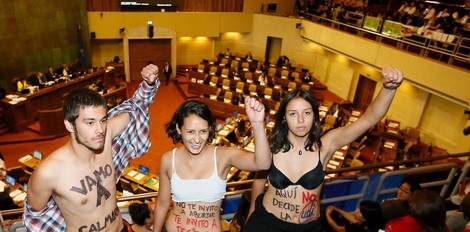Your podcast discovery platform
Curious minds select the most fascinating podcasts from around the world. Discover hand-piqd audio recommendations on your favorite topics.

piqer for: Globalization and politics Global finds
Luis BARRUETO is a journalist from Guatemala. Studied business and finance journalism at Aarhus University in Denmark and City University London.
Is there A Link Between The Lack Of Abortion Rights And Democracy In Latin America?
Unsafe abortions are a major problem in the developing world. But in Latin America, according to a joint report by The Lancet and the Guttmacher Institute, up to 75 per cent of abortions are performed illegally.
Writing at The Conversation, Larissa Arroyo examines the findings from this report and wonders why women in Latin American countries often lack access to this basic health service. "There’s a clear link between the state of a country’s democracy and the reproductive rights of its female citizens," she writes.
Apart from Malta and the Vatican, countries in the region including the Dominican Republic, El Salvador, Haiti, Honduras, Nicaragua, and Suriname are the only ones in the world to completely criminalize abortions. There is a common thread in all these countries, which lack a functional democratic system and thus fail to guarantee gender equality. Indeed, where human rights violations are rampant in some of these countries, in areas ranging from violence and poverty to impunity, it's not hard to see "the connection between the lack of rule of law and women’s restricted reproductive rights."
Arroyo pinpoints the cases of Honduras, Nicaragua and El Salvador as three countries in Central America where the situation for women is particularly dire. Pair this with a recent piece by Oliver Stuenkel at Americas Quarterly, where he argues that Central American countries face an ominous threat that transcends the left-right boundary. That is, unrestrained executive power, and a tendency towards authoritarianism.
The problem is twofold. Not only are women's lives at risk in regimes where abortion is still forbidden, Arroyo explains. The political systems themselves are in peril: "Can democracy exist in places that don’t recognize women as people?"
